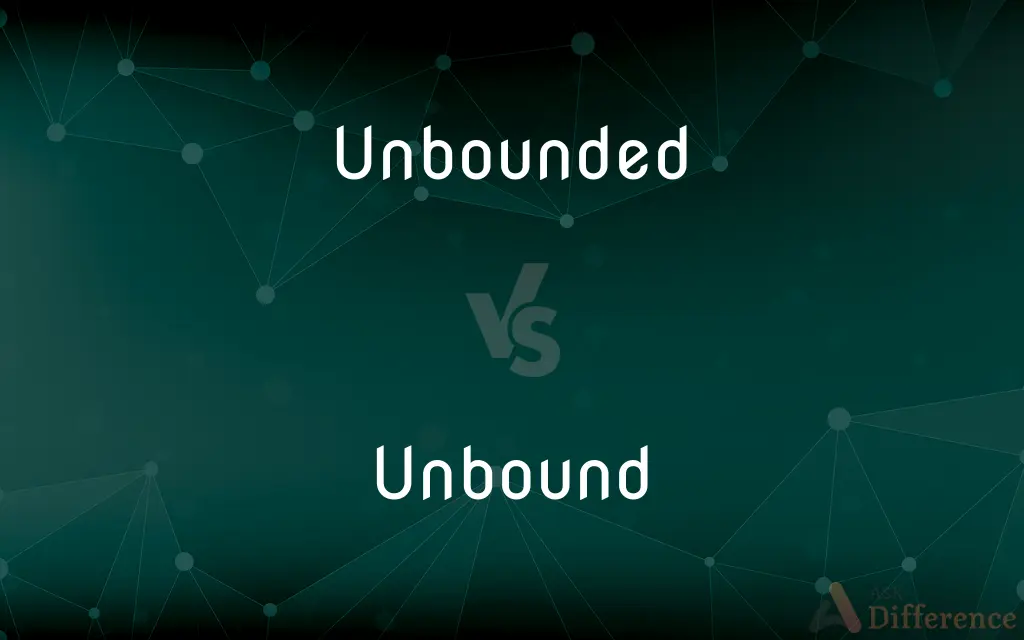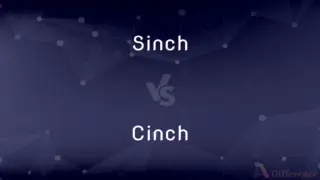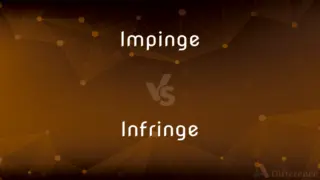Unbounded vs. Unbound — What's the Difference?
By Tayyaba Rehman & Maham Liaqat — Updated on February 20, 2024
Unbounded suggests limitless or infinite extent, often used in mathematics or abstract concepts. Unbound, however, implies freedom from constraints or ties, commonly in physical or metaphorical contexts.

Difference Between Unbounded and Unbound
Table of Contents
ADVERTISEMENT
Key Differences
Unbounded often refers to something without limits or borders, especially in abstract, mathematical, or spatial contexts. It suggests an infinite or undefined scope. Unbound, in contrast, typically relates to something being released from constraints, bindings, or limitations, indicating a state of freedom or liberation.
In mathematics, "unbounded" describes a set or function that lacks an upper or lower limit. This term is crucial in understanding the behavior of functions or sequences. "Unbound," however, is less common in this field and more often used in metaphorical or literal senses, such as unbound books or unbound particles.
When discussing freedom or liberation, "unbound" is the preferred term, evoking images of breaking free from physical or metaphorical ties. "Unbounded," while it can imply a form of freedom, leans more towards describing limitless possibilities rather than liberation from constraints.
In literature or creative contexts, "unbounded" imagination or creativity suggests limitless potential and ideas that know no bounds. "Unbound" could describe a character or narrative that breaks free from traditional constraints, emphasizing a journey towards freedom or new possibilities.
The choice between "unbounded" and "unbound" depends on the context: "unbounded" is ideal for describing infinite extents or possibilities, whereas "unbound" suits discussions of liberation or freedom from restrictions.
ADVERTISEMENT
Comparison Chart
Definition
Without limits or borders
Released from constraints
Common Usage
Abstract, mathematical contexts
Physical, metaphorical contexts
Implication
Infinite extent or scope
Freedom or liberation
Typical Contexts
Mathematics, spatial concepts
Literal or figurative freedom
Examples
Unbounded universe, unbounded set
Unbound book, unbound spirit
Compare with Definitions
Unbounded
Limitless in scope or potential.
Her unbounded enthusiasm was infectious.
Unbound
Freed from binding or ties.
The unbound pages scattered in the wind.
Unbounded
Infinite or endless in extent.
The artist's unbounded imagination led to innovative creations.
Unbound
Not confined by constraints or limits.
He felt unbound by societal expectations.
Unbounded
Not confined to specific parameters.
The unbounded solutions complicate the equation.
Unbound
Detached or separated from bindings.
The book's spine was broken, leaving it unbound.
Unbounded
Without restrictions in range or scope.
The internet offers unbounded opportunities for learning.
Unbound
Released from captivity or restraint.
The unbound prisoner savored his freedom.
Unbounded
Having or appearing to have no limits
The possibilities are unbounded
Unbound
Liberated from traditional or formal constraints.
Her unbound creativity defied conventional norms.
Unbound
Without a binding.
An unbound book
Unbound
Not restrained or tied down by bonds
Common Curiosities
Can unbound be used to describe emotions?
Yes, unbound can describe emotions that are freed from restraint, such as unbound joy or excitement.
What does unbound mean?
Unbound implies being released from physical, metaphorical, or conceptual constraints, indicating a state of freedom.
What does unbounded mean?
Unbounded refers to something that has no limits, borders, or boundaries, often used in abstract or mathematical contexts.
Can a concept be both unbounded and unbound?
Yes, in certain contexts, a concept can be described as both unbounded (limitless) and unbound (free from constraints), depending on its nature and the aspects being emphasized.
Can a person be described as unbound?
Yes, describing a person as unbound typically refers to their state of being free from restrictions or limitations.
Is an unbounded problem more difficult to solve?
Often, yes, because an unbounded problem may lack clear limits or parameters, making it more challenging to define or approach.
Is unbounded optimism realistic?
Unbounded optimism may not always be realistic, as it implies limitless positivity without acknowledging potential limitations or challenges.
What is the significance of unbounded variables in programming?
In programming, unbounded variables may lead to issues like infinite loops or memory overflows, as they lack defined limits.
Is unbounded more common in mathematics?
Yes, unbounded is more frequently used in mathematics to describe sets or functions without upper or lower limits.
How does unbound relate to creativity?
Unbound creativity refers to thinking or creating without adherence to conventional boundaries or norms, highlighting freedom of expression.
Can art be unbounded?
Art can be described as unbounded when it explores limitless expressions, themes, or techniques without restriction.
What does it mean for information to be unbound?
Information being unbound implies it is free from traditional publishing or format constraints, accessible in various or unconventional ways.
Can a society be unbound?
A society can be described as unbound if it moves away from strict traditions or constraints, embracing more freedom and openness.
What is an example of an unbounded set?
The set of all positive integers is an example of an unbounded set, as it has no upper limit.
How can unbounded growth be unsustainable?
Unbounded growth can be unsustainable if it exceeds environmental, economic, or resource-based limits, leading to potential collapse or harm.
Share Your Discovery

Previous Comparison
Sinch vs. Cinch
Next Comparison
Impinge vs. InfringeAuthor Spotlight
Written by
Tayyaba RehmanTayyaba Rehman is a distinguished writer, currently serving as a primary contributor to askdifference.com. As a researcher in semantics and etymology, Tayyaba's passion for the complexity of languages and their distinctions has found a perfect home on the platform. Tayyaba delves into the intricacies of language, distinguishing between commonly confused words and phrases, thereby providing clarity for readers worldwide.
Co-written by
Maham Liaqat













































